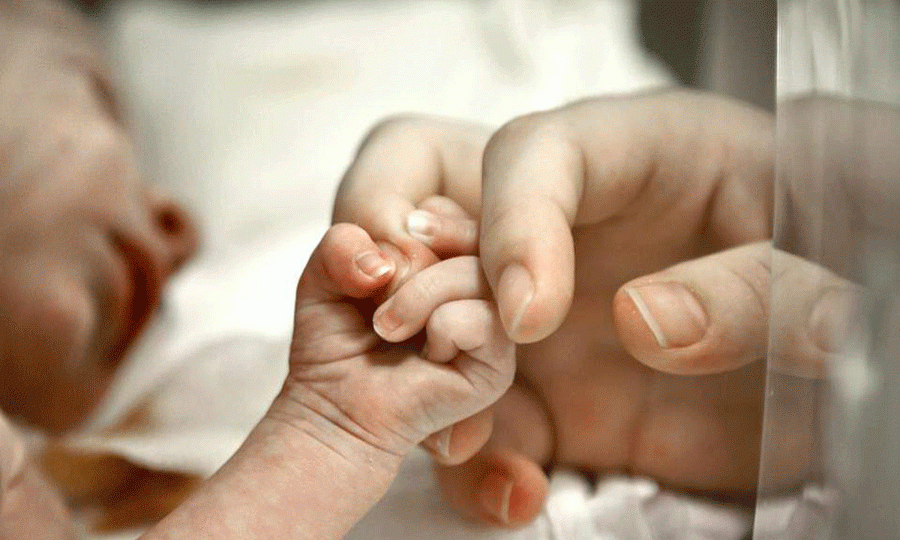
Home birth. Legislative ban on medical assistance at planned home birth. No violation of private life
JUDGMENT
Kosaitė – Čypienė and others v. Lithuania 04-06-2019 (no. 69489/12)
SUMMARY
Home births. The applicants, four women, had unsuccessfully requested that the Ministry of Health amend the legislation that prohibited medical professionals from assisting in home births. The Court found that Lithuania had struck a fair balance between the interests involved: namely, the mothers’ right to respect for their private life against the State’s interest in health and safety. In particular, the four women could have opted for any one of the maternity wards created in Lithuania since the 1990s to ensure home-like conditions for women giving birth, in particular in Vilnius where they lived. Additionally, postnatal care was available if an emergency had arisen during or after a delivery at home. Moreover, although Lithuania had recently changed the law on home births, it had not actually been required to do so under the European Convention given the great disparity between the legal systems of the Contracting States on the matter.
PROVISION
Article 8
PRINCIPAL FACTS
The applicants, Ms I. Rinkevičienė, Ms E. Zakarevičienė, Ms O. Valainienė, and Ms E. Kosaitė-Čypienė,
are Lithuanian nationals who live in Vilnius.
The four applicants are mothers who gave birth at home with the aid of a doula (a childbirth coach),
J.I.Š. They attest that their home births took place without complications.
After criminal charges were brought against J.I.Š. for assisting in home births, in 2012 three of the
applicants asked local hospitals to provide them with medical assistance for a home birth. However,
the hospitals refused because providing such aid was prohibited under the relevant domestic
legislation, namely Medical Regulation MN 40:2006.
Three of the applicants then asked that the Ministry of Health amend the legislation to permit
medical personnel to assist with home births. The Ministry replied that there were no plans to
amend the legislation or enact new legislation to regulate midwifery services at home, stating that
giving birth in a maternity ward was the safest option and that the applicants could visit the wards to
find the one most suited to their needs.
Ms O. Valainienė challenged the Ministry’s reply before the administrative courts, without success.
Ultimately, in 2012 the Supreme Administrative Court rejected her argument that the absence of
legal regulation on medical assistance during home birth breached her right to privacy. On the contrary, domestic law guaranteed her the right to choose the most suitable medical institution and to state her wishes regarding privacy and, in any case, the right to privacy could not be given higher value than the health of mother and child.
THE DECISION OF THE COURT
The Court found that the applicants had been put in a situation that had had a serious impact on
their freedom of choice: they had been required either to give birth in a hospital or, if they wished to
give birth at home, to do so without the assistance of a healthcare professional. The Court
considered that that had amounted to an interference with the applicants’ right to respect for their
private life.
That interference had, however, been in accordance with the law. The domestic law had not only
been accessible but it had also been explicitly and clearly regulated, enabling the applicants to
foresee that professionally assisted home births were not permitted. The ban had also been
confirmed through the letters from the hospitals that the applicants had received while some of
them were still pregnant.
Furthermore, it found that Lithuania had struck a fair balance between the applicants’ rights and the
State’s legitimate interest in protecting the health and safety of the mother and child during and
after delivery.
In particular, steps had been taken in Lithuania since the 1990s to ensure home-like conditions for
women giving birth in maternity wards. In Vilnius alone, where all four applicants lived, there were
three such hospitals. Ms Valainienė had in fact been invited to visit one of those hospitals but, as
pointed out by the Supreme Administrative Court, she had failed to make contact.
Additionally, postnatal care had been available if complications had arisen during or after delivery.
Lastly, while medical professionals would have faced legal repercussions for assisting in home births,
mothers could not be punished for giving birth at home.
The Court reiterated, moreover, that Lithuania was not required under the Convention to allow
planned home births. There was still a great disparity between the legal systems of the Contracting
States on home births and the Court was sensitive to the fact that the law developed gradually in
this area.
Although the law had indeed recently changed on home births, that could have no bearing on the
applicants’ situation which had taken place before the change.
In those circumstances, the interference with the applicants’ right to respect for their private life had
not been disproportionate and the Court concluded that there had been no violation of Article 8 of
the Convention.
Separate opinion
Judge Laffranque expressed a concurring opinion. This opinion is annexed to the judgment(echrcaselaw.com).


